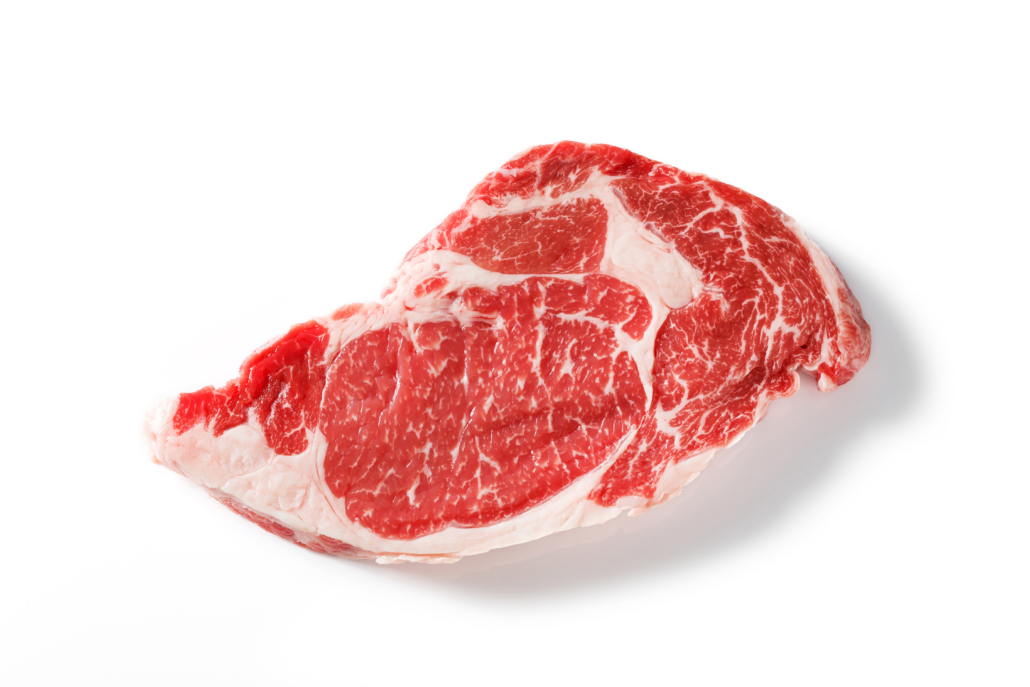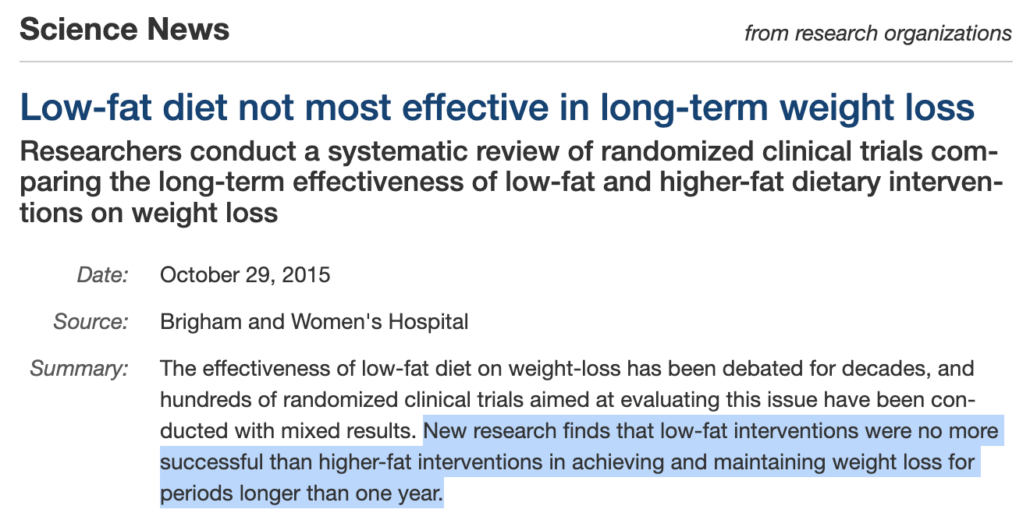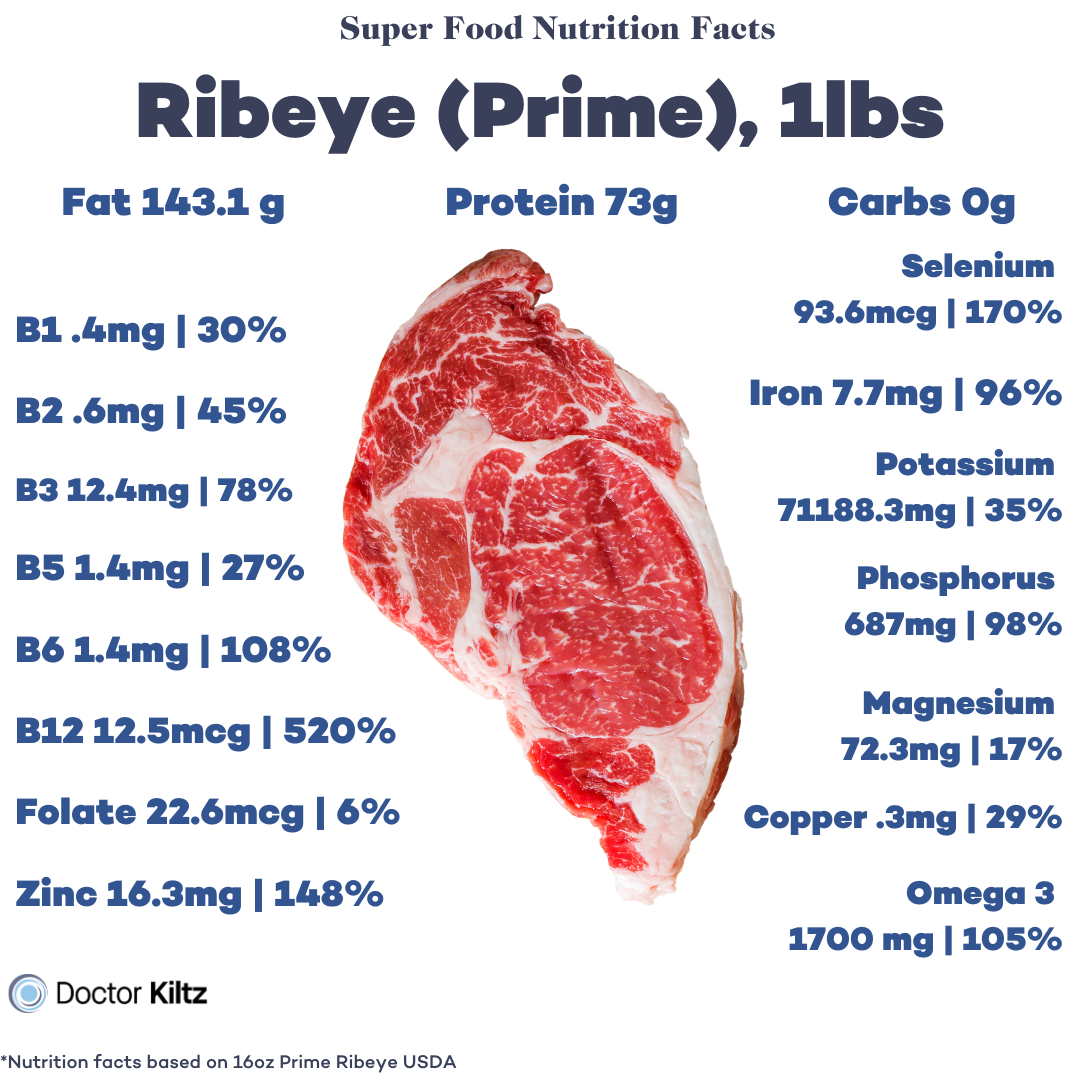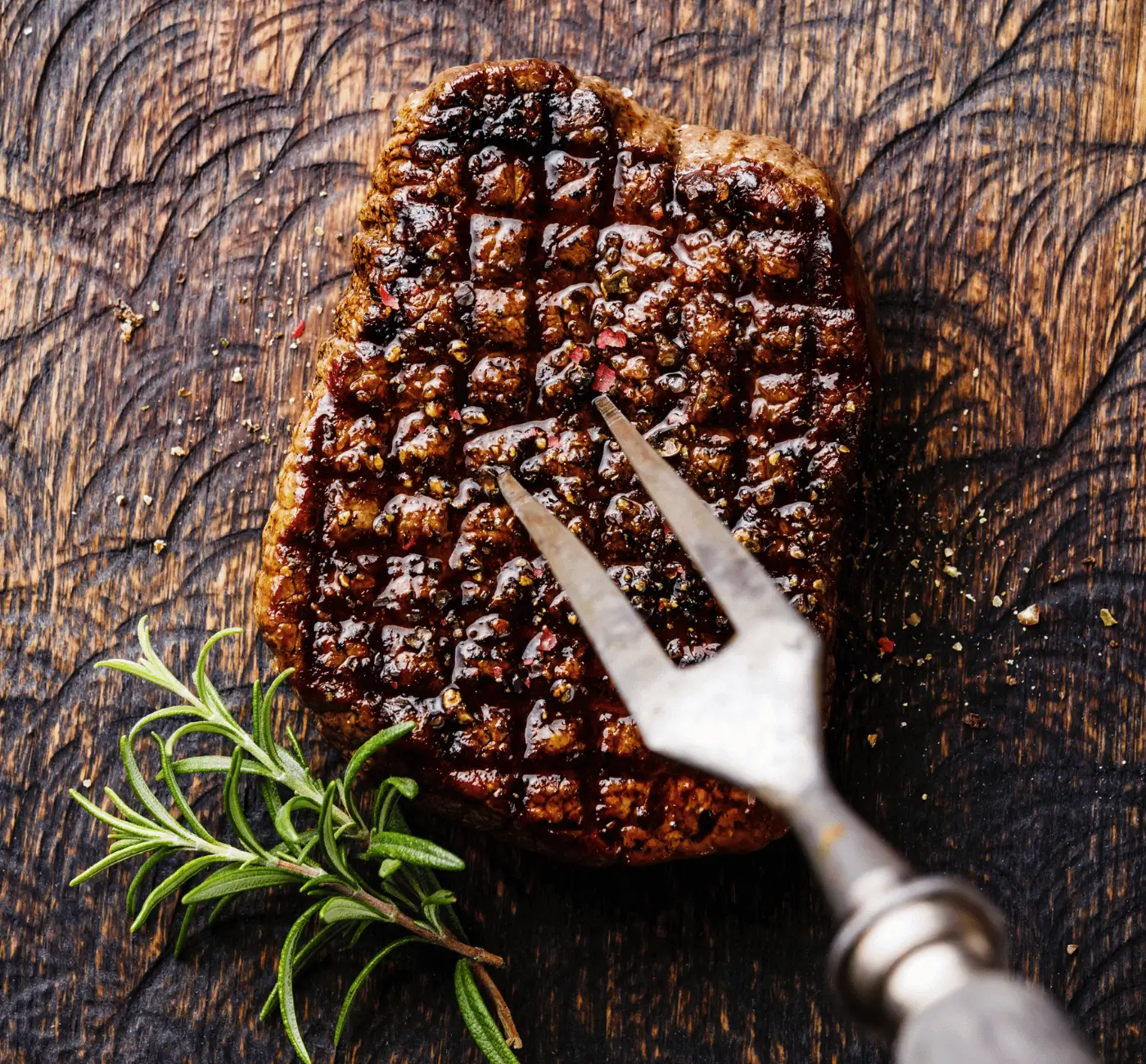
When most people think about losing weight, eating more steak isn’t the first thing that comes to mind. But maybe it should be!
While it may seem counterintuitive, research has shown that a rich, juicy steak can be the centerpiece of an effective weight loss diet.
In this article, we’ll explore the science behind why steak can be a healthy and effective addition to your weight loss journey. So, if you’re a steak lover looking to shed some pounds or simply curious about how steak can fit into a diet that promotes weight loss as part of an approach to overall health, read on!
Steak is a calorically dense food, and most cuts are marbled with delicious animal fat.
And we all know that high-calorie fatty foods have been persona non grata on weight loss diets.
However, various studies, including a major 2015 meta-analysis out of Harvard Medical School that examined 53 randomized control trials with over 68,128 participants, have found zero benefits to reducing fat for weight loss when compared to high-fat diets. [1] [2] [3]

Lead researcher Deirdre Tobias commented that “Despite the pervasive dogma that one needs to cut fat from their diet in order to lose weight, the existing scientific evidence does not support low-fat diets over other dietary interventions for long-term weight loss.” [4]

High-fat, low-carb diets that typically center around meats, including steak, have been found to result in superior weight loss when compared to low-carb, low-meat diets. [5] [6]
Here are a couple of examples of these head-to-head studies.
Now that we’ve debunked the pernicious and downright unhealthy dogma that low-fat and, therefore, low-steak diets are good for weight loss, let’s turn to the factors that make steak a good food for weight loss.
One important caveat–no foods will be good for weight loss when consumed as part of a high-carb diet. Especially when your diet contains lots of processed foods loaded with grains, added sugars, and seed “vegetable” oils.
For steak to be good for weight loss, you’ll need to cut out the junk and focus on nutrient-dense whole foods– of which steak is king.
Steak is a fantastic source of complete proteins, and many studies have found that high-protein diets induce weight loss. [9] [10]
A single 8 oz ribeye steak provides 65 grams of protein. Though there isn’t an established daily value for protein, people are advised to get between 50 and 170 grams per day, depending on their activity levels.
Another way to think about protein is in relation to body weight. Someone who weighs 165 pounds, or 75 kilograms, should get at least 60 grams of protein per day.
A single serving of ribeye fits the bill.
Steak is an incredibly satiating food. This means it will make you feel fuller for longer after a meal. [11]
The longer you feel full, the less likely you’ll be to snack in between meals. Fewer snacks mean fewer calories. Not to mention that most snacks are high in carbs, which is the leading factor in weight gain.

Steak is one of the most nutrient-dense foods on earth.
It’s a veritable multivitamin. A single 8 oz serving of ribeye provides
Many of these nutrients are directly linked to promoting weight loss.
For example, a controlled trial looking at the effects of zinc supplementation on obese participants found that it improved body weight, reduced inflammation, and reduced insulin resistance. [12]
A 2019 study found that people with higher levels of vitamin B12 were significantly less likely to be obese. [13]
Similarly, a 2018 clinical trial found that vitamin D supplementation promoted significant weight loss in obese and overweight women. The study also highlighted the association between low vitamin d levels and obesity. [14]

Perhaps the greatest factor that makes steak good for weight loss is what it isn’t. This is to say, steak is not a high-carb food and does not contain vegetable oils.
Storing excess body fat in unhealthy ways is associated with metabolic disorders that have everything to do with eating carbs and vegetable oils.
This is important because modern research tells us that obesity isn’t necessarily a result of the number of calories we eat. It’s most strongly associated with high-carb diets that promote a hormonal disorder called leptin resistance.

Leptin is a hormone secreted by your fat cells. When your leptin levels are normal and your brain is responsive to them, your body knows:
But our brains lose sensitivity to leptin when leptin levels are constantly spiked by high-carb foods, including grains, sweet fruits, and added sugars. [15] [16] [17]
When your brain loses the ability to “hear” the signals sent by leptin, your body gets stuck in starvation mode, even when you’ve consumed more than enough calories. Starvation mode means [18] [19] [20] :
It’s important to highlight that having stored body fat is not necessarily unhealthy. It’s the social shame around it that we should be reducing.
In fact, higher than average body fat is only unhealthy when it’s a symptom of metabolic disorders associated with eating diets high in carbs and processed foods combined with a sedentary lifestyle.
Millions of people naturally store fat on their bodies, move regularly, and show no signs of underlying metabolic disorders. Between 20-75% of people who meet the criteria for obesity have no negative health markers.
A more accurate way to think about your health is to look at markers of [21]
Though seemingly counterintuitive, steak is, in fact, good for weight loss.
Steak is a nutrient-dense food that provides an abundance of macronutrients, vitamins, and minerals directly implicated in weight loss, including protein, zinc, vitamin B12, and vitamin D.
Steak is also a low-carb whole food. At the same time, high-carb and processed foods promote leptin resistance– a driving factor behind the metabolic disorder and obesity. Steak can be the center of low-carb diets that have been shown to reverse metabolic disorders and combat obesity.
Type your email*
Submit







We’re a global community of seekers, healers, and doers committed to reclaiming health on our own terms. When you join the Kiltz Mighty Tribe (KMT), you’ll gain access to education, support, and collective wisdom.


